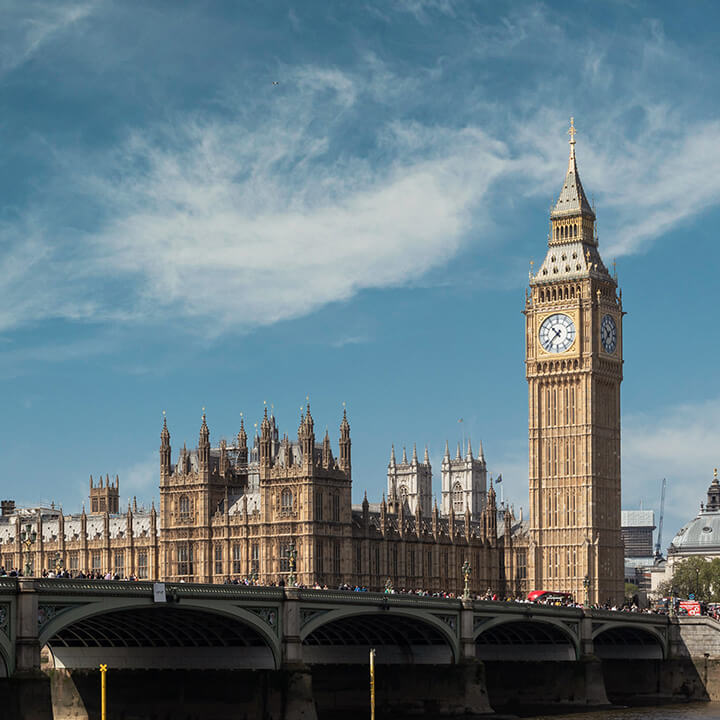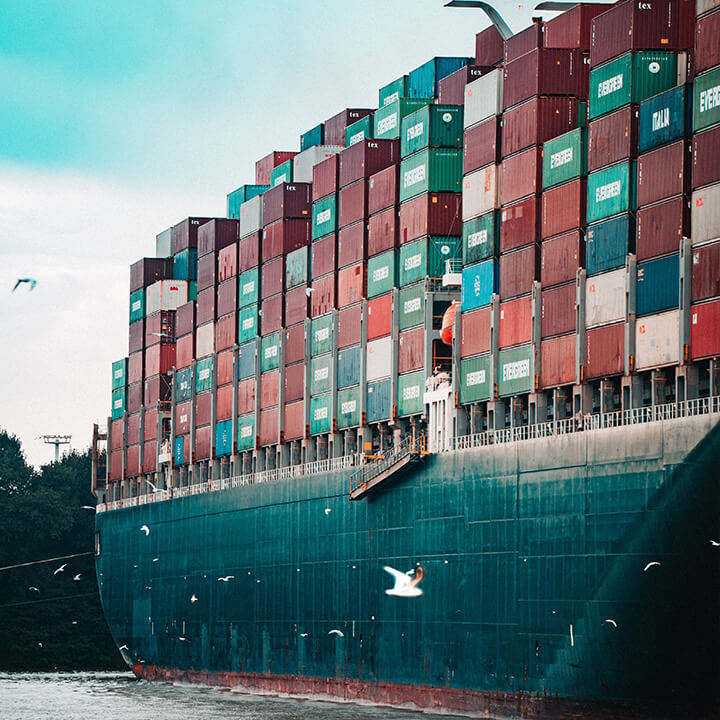Manufacturing Horizon Scanner: October 2024
29th October 2024
“Manufacturing is undergoing a transformation. Businesses are investing in new equipment, facilities and tech, as well as upgrading plant, to create ‘smart factories’ and to address sustainability. Our cross-discipline specialists bring legal expertise and horizon-scanning to help their clients establish thriving ‘factories of the future'”.


Manufacturing & Supply Chain
The EU’s new supply chain law, the Corporate Sustainability and Due Diligence Directive (CSDDD), came into force on 25 July 2024. It introduces obligations on EU companies with over 1,000 employees and a net worldwide turnover of over €450 million, and on non-EU companies with a net turnover in the EU of over €450 million, to address environmental and human rights harms in their supply chains. It covers pollution, biodiversity loss, child labour and modern slavery, and more. It’s enforceable by regulators and the courts. The CSDD also makes net zero transition plans mandatory. The EU has published guidance to help businesses understand and comply with the CSDDD.
Global insurance broker and risk advisor Marsh has cited the following as key liquidity risks in 2024:
- Access to a stable supply chain and the need to streamline, including sourcing and securing raw materials.
- Maintaining a stable cash flow and meeting debt obligations, as customer collection periods increase, with some manufacturers having to renegotiate terms, restructure/enhance banking facilities or even having to terminate some customer relationships.
- Machinery/asset valuation volatility in light of technological advancements and inflation, and resulting underinsurance.
See our briefing on climate-related stranded assets and what businesses need to know.
Apart from the CSDDD, responsibility within supply chains has been the focus of a key case in the Court of Appeal, R (World Uyghur Congress) v NCA. In the case, the National Crime Agency’s decision not to open a money laundering investigation into the UK trade of cotton from the Xinjiang Uyghur Autonomous Region of China, was found to be unlawful. The impact of the Court of Appeal’s decision is that trading in goods that are known or suspected to have been produced with forced labour, or any other criminality (and/or in products containing those goods), can be a criminal offence, even if fair value has been paid. There are significant implications for how businesses should manage risks of human rights abuses, environmental risks, and other wrongdoing in their supply chains
In related news, a group of institutional investors has brought a claim against Boohoo, seeking damages following share price decline over ESG (environmental, social, governance) disclosures relating to factory workers.
Vanuatu, Fiji and Samoa have formally proposed that the international criminal court recognise ecocide – unlawful or wanton acts committed with knowledge that there is a substantial likelihood of severe and either widespread or long-term damage to the environment being caused by those acts – as a crime. The change could allow for the prosecution of individuals responsible for environmental destruction, such as the heads of polluting companies, or heads of state.
“Tackling the imperative to get their business’ ESG approach right – ensuring legal and regulatory compliance and embedding sustainability and responsibility in the ethos, operations and reputation of the business – is one of the biggest challenges facing board members and in-house counsel today.”

See our briefing for practical advice, including a step-by-step approach, for addressing ESG challenges.
The Government Office for Science has published Future of Global Supply Chains – a foresight project which aims to help decision-makers build resilient supply chains and safeguard critical imports. A project report, looking at the critical long-term uncertainties facing global supply chains and a qualitative approach to stress-testing to help the UK take action to ensure future resilience, is planned for 2025.
The EU Deforestation Regulation (EUDR) is due to come into force on 30 December 2024. It requires importers of cattle, cocoa, coffee, oil palm, rubber, soya and wood to ensure products entering the EU have not caused deforestation or forest degradation. Compliance requires extensive data collection. The Financial Times (8 September 2024) reported that Indonesian palm oil producers have warned of global supply chain disruption if the EUDR comes into effect as planned, while uncertainty remains regarding certain aspects of implementation.
On 15 July 2024, the European Commission published guidance on the application of energy labelling requirements. The Energy Labelling Regulation 2017 require suppliers and retailers to refer to the energy efficiency of products on the label in visual advertisements or technical promotional material. The guidance applies to all products covered by the regulations. The requirements apply immediately, but the EC has suggested that it may avoid infringement action for 6 months (or 12 months in respect of pre-existing printed material).
The United Nations Commission on International Trade Law (UNCITRAL) has adopted the UNCITRAL Model Law on Automated Contracting. It provides a legal framework enabling the use of automation in international contracts, through AI, smart contracts and machine-to-machine transactions. It’s intended to complement and supplement existing laws on electronic transactions.
In a joint interview with The Guardian (5 August 2024), the chief executive of Make UK and the general secretary of the TUC joined forces to warn the government that rapid action is required to launch a long-term industrial strategy.
A recent survey conducted by Reuters Events, Supply Chain and Maersk demonstrates that, while 99% of European supply chain professionals said that they had partial or full visibility for their own inventory and warehousing, just 3% report full visibility over tier three suppliers and 17% had only partial visibility. Deeper visibility is associated with higher performing companies and a competitive advantage, enabling companies to adapt more effectively to unexpected circumstances.
Have you visited our dedicated ‘Factory of the Future’ microsite?

Logistics
Savills’ July 2024 Big Shed Briefing shows that UK take-up of industrial and logistics space (units of 100,000 sq ft+) reached 16.82 million sq ft in the first half of 2024, a 44% increase when compared with the same period last year, and 13% above the long-term average.
Hellenic Shipping News (14 August 2024) has reported that cross-docking can help the supply chain and logistics industry to increase inventory and transport agility and speed, and to minimise storage time and cost, through the use of consignment sorting at dedicated cross-docking distribution centres. See HSN’s comprehensive guide to cross-docking here.
A white paper published by Aurora Innovation finds that autonomous trucking could increase energy efficiency by up to 32% relative to traditional trucking – helping the freight and logistics industry reduce emissions, meet environmental regulatory mandates, and bring down operating costs.
In related news, Ikea is embracing inventory drones. With massive warehouses, stocked with large items, across multiple locations, Ikea now commands 100 inventory drones across 16 of its locations in Europe. The scanning drones can provide around-the-clock updates to inventory and reach vertical heights humans and most robots can’t. See Walker Morris’ briefings on drone usage and the law.
“Adopting a sector-focussed approach, our lawyers from across the firm (including construction and engineering, technology, commercial and regulatory) frequently adopt a one team approach, working seamlessly to solve problems and navigate clients through the issues involved in complex factories of the future as quickly and efficiently as possible.”

On 30 July 2024, the UK transport secretary published a written statement to Parliament to launch a transport infrastructure review.
The TransiT Hub is a new national collaboration of eight universities and 67 partners across the transport, energy and digital sectors, focused on rapidly decarbonising transport in the UK. The hub will cover road, rail, air and maritime. It has already secured £46 million and will identify the lowest cost, least risky and most energy-efficient way to decarbonise transport by developing a digital twinning approach.
Wales & West Utilities and Ofgen are conducting a study exploring how hydrogen refuelling stations can be integrated into the UK’s existing gas network. The research will consider infrastructure solutions which increase the viability of hydrogen Fuel Cell Electric Vehicles as a sustainable alternative to traditional petrol and diesel vehicles.
The EU’s Entry-Exit System (EES) will be launched on 10 November. It will require non-EU travellers to provide biometric information, such as fingerprints and facial scans, at the border, making it harder for criminals or terrorists to enter the EU using fake passports. The UK government has announced £10.5 million funding to help mitigate travel disruption at British ports, as a result. Logistics UK has published new research raising the prospect of increased food prices and the potential for shortages as a result of delays caused by EES from November 2024.
In related news, the European Travel Information and Authorisation System will be introduced from May 2025. It could see non-EU nationals having to pay a fee to enter the bloc.
New research by S-RM suggests that, despite the current geopolitical climate and recent trade disputes, conflict and supply chain disruption, only some 10% of shipping and logistics companies address geopolitical risks as part of their ESG programmes. Forthcoming corporate sustainability and due diligence reporting requirements in the UK and internationally are also a concern for operators and investors in the industry.

General/In-house Counsel
Corporate/corporate reporting
The government has published guidance on the information sharing measures in the Economic Crime and Corporate Transparency Act 2023.
The Financial Reporting Council has published its annual review of corporate reporting, setting out the findings of its monitoring of UK companies’ annual report and accounts alongside its expectations for the upcoming reporting season.
The Task Force on Nature-related Financial Disclosures (TNFD) announced a 30% increase in adopters of their corporate reporting recommendations since January and released a suite of sector guidance, including recommended sector-specific disclosure metrics, to support reporting by companies and financial institutions. New sector guidance covers aquaculture, biotechnology and pharmaceuticals, chemicals, electric utilities and power generators, food and agriculture, forestry and paper, metals and mining, as well as oil and gas. The TNFD has also published guidance to help banks, re/insurance companies, asset managers and owners, and development finance institutions apply its recommended disclosures.
The TNFD signalled its support for the use of cross-reference tables in corporate reporting to help simplify and streamline the presentation of TNFD-aligned recommended disclosures in existing voluntary or mandatory corporate reporting. The announcement responds to market calls for greater streamlining of corporate reporting and reflects existing market practice.
The Financial Conduct Authority’s (FCA) anti-greenwashing rule came into force in the UK on 31 May 2024. This is the first part of the FCA’s Sustainability Disclosure Requirements.
The FCA has updated its webpage on the sustainability disclosure and labelling regime, with information for firms on how to notify the regulator about their use of an investment label for a fund.
During the next 2 years, the International Sustainability Standards Board (ISSB) will deliver further harmonisation of the sustainability disclosure landscape as it embarks on a new work plan. See this press release.
The ISSB has published its feedback statement for 2024 on the International Financial Reporting Standards (IFRS) Sustainability Disclosure Standards. The plans aim to support the application of disclosure requirements under IFRS S2, Climate-related disclosures, and decrease fragmentation of information in the market.
The government has published a policy paper on the framework and terms of reference for the development of UK Sustainability Reporting Standards, and an update on the government’s wider work programme to develop a Sustainability Disclosure Requirements regime in the UK.
The deadline for the EU Commission to publish certain reporting standards under the EU Corporate Sustainability Reporting Directive (CSRD) has been delayed from 30 June 2024 to 30 June 2026. The CSRD, which came into force in January 2023, sets out disclosures for companies to include in their annual report in relation to sustainability matters. Even though the UK is not part of the EU, the CSRD will impact some UK incorporated companies.
Companies House has published guidance on its approach to financial penalties.
Commercial/general
The King’s Speech, delivered on 17 July 2024, outlined the new Labour government’s legislative agenda, various aspects of which will impact manufacturing. See Walker Morris’ briefing for the ‘need to know’ for UK businesses.
The Terrorism Protection of Premises Bill (AKA Martyn’s Law) is expected to become law in 2024. Proposed in the wake of the Manchester Arena bombing, it aims to strengthen security measures in public venues across the UK. As well as concert halls, stadiums, and other crowded spaces, the implications of Martyn’s Law will extend to other publicly accessible venues and events, including hospitals, large care homes, shops, leisure, education and transport facilities, and more.
The Department for Business and Trade (DBT) has consulted on de-regulating the Commercial Agents Regulations, with a view to simplifying the legislative framework, reducing court time spent interpreting the regulations, and enabling businesses to contract more freely. The outcome of the consultation is awaited.
Guidance on the UK’s new failure to prevent fraud offence is set to be published in the next three months, meaning the offence could become law by April 2025.
On 16 July, the Competition and Markets Authority (CMA) published its final advice for businesses marketing green heating and insulation products. In August, the CMA closed its ‘greenwashing’ investigation into heating and hot water products company Worcester Bosch (WB) in August, following WB’s giving of some fairly significant undertakings in relation to its marketing of its boilers. But greenwashing isn’t just an issue for the heating products industry – it’s a concern for businesses in all sectors. This investigation, and those in other companies/industries, concluded with businesses formally committing to ensuring that green claims are lawful in future without the CMA having to prosecute. When relevant provisions of the Digital Markets, Competition and Consumers Act 2024 come into force (possibly late 2024/2025), the CMA will additionally be able to directly fine businesses up to 10% of their global turnover for breaches of consumer protection law.
See our know-how on greenwashing and our recent article on the wider ‘washing’ phenomenon for legal and practical advice.
A Senior Associate in our Regulatory & Compliance team recently shared their insights on the growing trend of AI claims in advertising in this recent BBC article on ‘AI washing’.
The government has published a consultation on its 10 year plan industrial strategy, ‘Invest 2035‘, which aims to “ease the investor journey and create long-term, inclusive, secure and sustainable growth”. The government has said its strategy will channel support to advanced manufacturing; clean energy industries; creative industries; defence; digital and technologies; financial services; life sciences and professional and business services. The consultation is open until 24 November 2024.
An October 2024 report from the Global Commission on the Economics of Water states that more than half the world’s food production will be at risk of failure within the next 25 years due to the rapidly accelerating global water crisis grips the planet. See Walker Morris’ briefing on water stress and what businesses need to know.
The DBT has published the Assimilated EU Law Parliamentary Report for January 2024 to June 2024. It highlights progress to date and future plans on revoking and reforming assimilated law.
The government announced a new package of measures aimed at tackling late payments and published updated guidance to reporting on payment practices and performance.
Data protection, cybersecurity and tech
The Information Commissioner’s Office (ICO) launched a new audit framework, including 9 toolkits, designed to help organisations assess data protection compliance.
The EU Data Act is part of the European Commission’s data strategy. Most of its provisions will apply as of 12 September 2025. Obligations under the EU Data Act will mostly fall upon large manufacturers of connected products (i.e. products that obtain, generate or collect data concerning their use or environment, and that are able to communicate this data via electronic communications, physical connection or on-device access) placed on the EU market, and providers of related services irrespective of their place of establishment. Such businesses will be required to make user-generated data accessible to the user and to third parties of the user’s choice.
The government recently announced that UK data centres will be given ‘Critical National Infrastructure’ status, opening up greater government support in preventing and recovering from critical incidents such as cyberattacks.
The government confirmed that the Cyber Security and Resilience Bill announced in the King’s Speech will be introduced to Parliament in 2025.
The National Cyber Security Centre (NCSC) has published new guidance to help Chief Information Security Officers communicate with boards to improve oversight of cyber risk, as well as guidance for organisations on implementing strong methods of multi-factor authentication for accessing corporate online services. The NCSC has also: advised individuals and organisations to take protective action in response to a China-linked campaign targeting thousands of internet-connected devices; released a blog post on whether a Software Bill of Materials (or SBOM) can provide organisations with a better insight into their supply chains; and discussed help for those looking to develop and deploy ‘digital twins’.
The UK has signed the first legally-binding international treaty governing the safe use of AI. Once the treaty is ratified and brought into effect in the UK, existing laws and measures will be enhanced. The government will work with regulators to implement new requirements. One to watch.
The EU AI Act has been formally published. While most provisions will apply from 2 August 2026, the providers and deployers of all AI systems will need to comply with the ‘AI literacy’ requirement from 2 February 2025. This means taking measures to ensure a sufficient level of AI literacy of staff and others dealing with the operation and use of AI systems on behalf of the provider or deployer, including implementing appropriate training programmes, policies, and procedures. Our recent article sets out who’s in scope.
In related news, the European Commission announced that over 100 companies have signed the EU AI Pact and its voluntary pledges ahead of EU AI Act implementation, and the International Chamber of Commerce (ICC) produced a narrative on AI governance from the perspective of global business, citing real-life examples.
People
The ICC published the first part of a report series looking at the role of emotion, culture and behavioural tendencies and their impact on B2B relationships.
A new duty to prevent sexual harassment comes into force on 26 October 2024. It will place a new obligation on employers to take reasonable steps to prevent sexual harassment of their workers. Failure to comply could lead to increased compensation in the Employment Tribunal; Equality and Human Rights Commission (EHRC) action; and reputational damage and employee relations issues. See our recent briefing for more details. The EHRC has published updated guidance for employers ahead of the change in the law. Historic policies in employee handbooks won’t suffice.
The Supreme Court has unanimously allowed the employees’ appeal in the high profile Tesco ‘fire and re-hire’ case.
Research (Digital Noise Impact Report) from employee experience platform, Unily, shows that nearly half of all employees are distracted at least once every 30 minutes, and almost a third report being distracted at least once every 15 minutes by a workplace notification. That means employees working 8-hour days could be experiencing over 160 distractions from their workplace digital tools each week. It’s impacting both employee wellbeing and productivity.
The Home Office has published updated guidance for employers on right to work checks.
In Orwin v East Riding of Yorkshire Council, an employee had been dismissed for refusing to remove an email signature using preferred pronouns that was intentionally provocative. The claimant’s views, including that sex is biologically immutable and binary, were protected under the Equality Act 2010. However, the email signature (“XYchromosomeGuy/AdultHumanMale”) was a deliberately provocative act to mock the idea of gender self-identification, rather than an expression of the claimant’s gender identity. The dismissal was in response to an inappropriate manifestation of the claimant’s beliefs, rather than because he held gender critical beliefs. It was therefore not discriminatory.
An Employment Rights Bill will be introduced to Parliament in October 2024 – ‘the biggest upgrade to workers’ rights in a generation’. Key aspects include making parental leave, sick pay and protection from unfair dismissal available from day 1 for all workers; strengthening protections for new mothers; strengthening Statutory Sick Pay by removing the lower earnings limit; banning exploitative zero-hour contracts and fire and re-hire/fire and replace practices; and establishing a new Single Enforcement Body. See our recent article for more details and suggested preparatory actions.
The EHRC has published updated guidance for those placing or publishing advertisements, to help them make sure adverts are lawful and don’t discriminate.
The Workers Union launched a major new 4-day working week trial with the hope of influencing the new government. The trial will start in November and the findings will be presented to the government next summer.
After becoming the first retailer to publish a socioeconomic pay gap report, the Co-op is calling on government and businesses to take collective action to tackle inequality as it campaigns for changes to the Equality Act.
A recently published Employment Tribunal decision (Ngole) case demonstrates risks associated with informal pre-employment checks. Mr Ngole, a qualified social worker, was offered a job. The prospective employer ‘Googled’ Mr Ngole and discovered he’d been dismissed from a university course after expressing anti-gay views on Facebook. The employer became concerned that Mr Ngole’s values didn’t align with theirs. They were particularly concerned about the impact on LGBT+ service users, who statistically face much higher rates of serious mental health issues, due to stigma and discrimination. It withdrew the conditional job offer. An employment tribunal decided withdrawal of the job offer amounted to direct discrimination on the grounds of religious beliefs. The tribunal balanced Mr Ngole’s rights to freedom of expression against the employer’s objective of protecting others. It concluded that, although the objective of protecting staff and vulnerable service users was legitimate, withdrawal of the offer wasn’t proportionate.
Our people
Explore
Click below to jump to each section.
Manufacturing & Supply Chain Logistics General/In-house Counsel







“Asset stranding is increasingly becoming a key commercial consequence of national and international climate action. Businesses should take steps now to assess their risk, and to mitigate any adverse economic impact.”
Ben Sheppard, Partner, Infrastructure & Energy